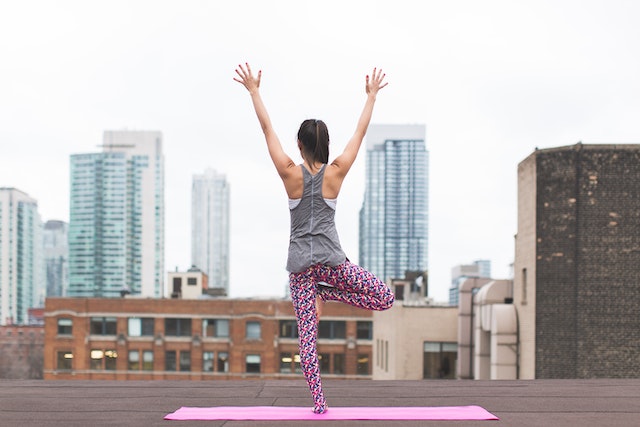Benefits of yoga for strength and flexibility:
WHAT IS YOGA?
Yoga is a physical practice that has been around for thousands of years. While it was traditionally practiced in Eastern cultures, yoga has gained popularity worldwide for its benefits to both physical and mental health. One of the primary benefits of yoga is its ability to improve strength and flexibility. In this article, we will explore how yoga can help you achieve these goals.
Flexibility is an important aspect of overall physical health. When you have good flexibility, you are less prone to injury, can move more freely, and experience less pain and discomfort. Yoga can help improve flexibility in a number of ways. Many yoga poses involve stretching and lengthening the muscles in the body. Holding these poses for an extended period of time can help increase range of motion and flexibility. Additionally, practicing yoga regularly can help improve joint mobility, making it easier to move and perform everyday activities.
Strength is another key component of physical health. Building strength helps to protect joints and prevent injury, improves posture, and increases overall body function. While yoga may not seem like a strength-building activity at first glance, it actually has many benefits for building strength. Many yoga poses, such as plank, boat, and crow, require significant upper body and core strength. Additionally, yoga often involves holding poses for extended periods of time, which can help build muscular endurance.
One of the key benefits of yoga for strength and flexibility is that it is a low-impact activity. Unlike many other forms of exercise, such as running or weightlifting, yoga puts very little stress on the joints. This makes it an ideal form of exercise for people who may have joint pain or other physical limitations. Additionally, because yoga can be modified to accommodate different fitness levels, it is accessible to people of all ages and abilities.
Another benefit of yoga for strength and flexibility is that it can be practiced anywhere, at any time. Unlike other forms of exercise that require a gym or specialized equipment, yoga can be practiced in the comfort of your own home with little to no equipment. This makes it a convenient and accessible way to improve your physical health.
In addition to its physical benefits, yoga also has many mental health benefits. Practicing yoga can help reduce stress and anxiety, improve mood, and increase overall well-being. This is because yoga encourages mindfulness and relaxation, helping you to become more present and aware of your thoughts and feelings.
In conclusion, yoga is a powerful practice that can help you improve your strength and flexibility. Its low-impact nature, accessibility, and mental health benefits make it an ideal form of exercise for people of all ages and fitness levels. Whether you are new to yoga or a seasoned practitioner, incorporating yoga into your fitness routine can help you achieve your physical and mental health goals.
Improved Balance and Coordination:
Another benefit of practicing yoga regularly is improved balance and coordination. Many yoga poses require you to balance on one leg or arm, which can help improve your overall stability and coordination. This can be particularly beneficial for older adults, who may be at a higher risk for falls due to decreased balance and coordination.
By improving your balance and coordination through yoga, you can also improve your performance in other activities such as sports or dancing. Improved balance and coordination can help you move more efficiently and effectively, reducing the risk of injury and improving your overall performance.
Stress Reduction:
In addition to the physical benefits, yoga can also help reduce stress and promote relaxation. Yoga practices, such as deep breathing and meditation, have been shown to activate the parasympathetic nervous system, which is responsible for the body's rest and relaxation response.
Regular practice of yoga can help reduce the symptoms of stress and anxiety, and improve overall feelings of well-being. It can also help improve sleep quality and reduce symptoms of depression.
Improved Breathing:
Another benefit of practicing yoga is improved breathing. Many yoga practices focus on deep, diaphragmatic breathing, which can help improve lung capacity and oxygenation of the body.
Improved breathing can also help reduce stress and anxiety, as well as improve overall physical performance. By improving your breathing through yoga, you may notice improvements in your endurance, stamina, and overall energy levels.
In conclusion, practicing yoga regularly can have a range of physical and mental benefits. Whether you are looking to improve your strength and flexibility, reduce stress and anxiety, or improve your overall well-being, yoga can be a valuable tool. With so many different styles and practices to choose from, there is a yoga practice that can benefit anyone, regardless of age or fitness level.

.jpg)

.jpg)






.jpg)




0 Comments